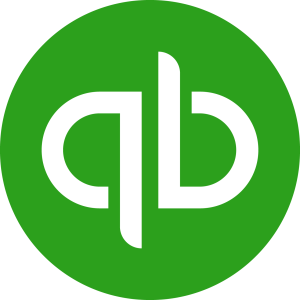How Many Employees Do Your Need Affordable Benefits For?
Finding affordable benefits like medical, dental, vision and 401K plans can be challenging. That’s why we did the hard work for you already, Simply answer a few questions below and get online quotes for top tier benefits at amazing rates.
Join a PEO and Save Big Money on Benefits, Health Plans As Low As $136/Month
If your company has a small group plan directly or you’re using a state exchange for benefits, a PEO could cut your expenses by 30% or more while improving your benefits and coverage. Our own company switched to ADP and saved over 35% on our benefits cost.
| PEO | Best for | Pros | Cons | |
|---|---|---|---|---|

|
Companies with 5+ Employees
Those seeking the best benefits for their staff |
Lower Rates Than Most PEO’s
Considered the Rolls Royce of HR Management. |
Best for Companies With 4-100 Employees | |

|
Access to High Quality Benefits | Cheaper Benefits Costs | May Require Minimum # of Employees | |

|
Personalized Service, Fortune 500 Benefits | Excellent Customer Service | Smaller PEO, Benefits not as robust.
Lower Cost Plans |
|

|
Small Teams or Single Operators | Benefits for Just 1 Employee | Can be costly for big teams |
Tired of Paying a Bookkeeper? Outsource Your Payroll for Under $100 a Month
Usually for as little as $25 an employee a month you can find complete payroll management services for your business. Stop dealing with tax payments, new hire paperwork, workers comp and more. Put it in the hands of A.I. and automation and save yourself money and liability.
| Best for | Pros | Cons | ||
|---|---|---|---|---|

|
Small and midsized companies
Save on bookkeeping costs. Automating on boarding employees and payroll process
|
Easy to use system.
Low cost per employee Automatically files state and federal forms and taxes. |
Health and medical benefits not offered | |

|
Quick and easy integration to Quickbooks accounting software
Makes tax time easier and lowers CPA costs. |
User interface very easy to use
Integrates well with Quick Books Online Accounting System |
None if already a quickbooks user. | |

|
Companies with employees in different states | Manages all state paperwork for you | Better for digital companies | |

|
Small companies with under 5 employees | Easy fee structure | Not as user friendly as Gusto |
Attach a credit line to your payroll now, not when you need it.
We’ve all been there before, it’s a day before the payroll draft and that one big client hasn’t paid their invoice yet. If it doesn’t hit, the payroll could bounce? There’s a company called Payro that can help you in these cases and it only costs money when you use them. We advise all of our partners to apply and get it, so you have it when it’s needed as there is no cost unless it’s used.
| Lender | Best for | Pros | Cons | |
|---|---|---|---|---|

|
All businesses who process payroll | Only pay for the amount and time used No cost to just have it |
The approval process can be a week we advise you get it before you need it |
Understanding PEOs: Payroll Services for My Business and How to Get Benefits for My Small Company
As a small business owner, one of your primary concerns is managing the administrative complexities of payroll, compliance, and employee benefits. Professional Employer Organizations (known as PEOs) offer an effective solution by providing outsourced payroll services and other HR functions. In this guide, we’ll explore how partnering with a PEO can streamline these tasks and help you secure better employee benefits for your business.
What is a PEO and How Can It Help My Business?
A PEO is a third-party organization that partners with small businesses to manage crucial human resources tasks, such as payroll services, employee benefits, compliance, and risk management. By outsourcing these functions, you can focus on growing your business while ensuring your employees receive top-tier benefits and legal protections.
How PEOs Benefit Small Businesses: Payroll Services and Employee Benefits
When you work with a PEO, they handle essential tasks like payroll processing, tax filing, employee benefits administration, and workers’ compensation. For a small business, this can free up time and resources to focus on strategic priorities.
Payroll Services for My Business
One of the most valuable aspects of a PEO is its payroll services. PEOs ensure that your employees are paid accurately and on time, while also taking care of tax withholding and filing. These payroll services reduce the administrative burden on your business, especially when dealing with complex tax laws and compliance requirements.
By partnering with a PEO, you can:
-
- • Streamline payroll processing
- • Ensure compliance with tax laws
- • Avoid payroll errors and penalties
- • Gain access to usually expensive payroll technology tools
How to Get Benefits for My Small Company
Offering competitive employee benefits is essential for attracting and retaining talent, but small businesses often struggle to provide high-quality benefits due to cost. PEOs solve this problem by pooling employees from multiple businesses, giving you access to group benefits that would otherwise be out of reach.
With a PEO, you can access:
- • Affordable health insurance plans
- • 401(k) and retirement savings plans
- • Life insurance and disability benefits
- • Employee assistance programs (EAPs)
These benefits not only help improve employee happiness but also make your business more attractive to top talent.
Pros and Cons of Using a PEO Based on Your Employee Size
For Businesses with 1-20 Employees
Pros:
- • Cost-Effective Payroll Services: Outsourcing payroll can save you time and reduce the risk of costly errors.
- • Access to Better Benefits: With fewer employees, you might not have the negotiating power to secure affordable health benefits. A PEO can help.
- • Compliance and Risk Management: PEOs stay updated on changing labor laws, reducing the risk of fines or penalties.
Cons:
- • Fees May Be High: For a small company, the cost of PEO services can be a significant factor to consider.
- • Limited Control: You may have less flexibility in customizing HR processes or benefits packages.
For Businesses with 20-50 Employees
Pros:
- • Scalability: As your business grows, a PEO can help manage the increasing complexity of payroll services and employee benefits.
- • Expert HR Support: A PEO can assist with recruiting, employee development, and performance management, enhancing overall HR efficiency.
Cons:
- • Rising Costs: As your employee count increases, the cost of PEO services may go up, which could affect your budget.
- • Standardized Benefits: A PEO’s benefits packages might not always meet the unique needs of your growing business.
For Businesses with 50-100 Employees
Pros:
- • Comprehensive HR Solutions: A PEO can offer more advanced services, including training programs and compliance with complex labor laws.
- • Reduced Administrative Burden: At this size, the time spent managing payroll and benefits becomes considerable. A PEO can take on these responsibilities.
Cons:
- • Potential for Less Personalization: Larger businesses may require more customized HR solutions, which could be challenging with a standardized PEO model.
- • Increased Cost: The larger the business, the higher the cost for PEO services. This might lead you to consider transitioning to an in-house HR department in the future.
Conclusion: PEO Payroll Services for Small Businesses
If you’re a business owner looking to streamline your payroll processes and offer better benefits to your employees, partnering with a PEO could be a wise decision. By outsourcing HR tasks, you can focus on growing your business while ensuring that your employees are well taken care of. Whether you’re just starting out with a few employees or expanding into a larger team, a PEO can help you manage payroll services and secure competitive employee benefits at every stage of your growth.
Interested in learning more about PEO payroll services or how to get better employee benefits for your small company? Reach out to a PEO provider today to explore how they can help optimize your HR operations and improve your business performance.
Payroll Processing Services: Benefits for My Small Company and How It Can Streamline Payroll
For small business owners, managing payroll, taxes, and compliance can be overwhelming. Many business owners turn to payroll processing companies to help streamline these essential tasks. Unlike PEOs, which offer a comprehensive range of HR services, a payroll processing company focuses primarily on handling your payroll and tax requirements. In this guide, we will explore the benefits of using a payroll processing company for payroll services for your business and how it compares to using a PEO.
What is a Payroll Processing Company?
A payroll processing company specializes in managing payroll functions for businesses. They handle tasks like calculating employee wages, withholding taxes, issuing payments, and ensuring compliance with tax laws. Unlike PEOs, which handle a wide range of HR functions (like employee benefits and compliance), a payroll processing company is more focused on accurately managing payroll tasks.
How Payroll Processing Companies Benefit Small Businesses
Payroll Services for My Business
Using a payroll processing company helps you simplify payroll tasks and ensure compliance with federal, state, and local tax laws. Here’s how payroll services can benefit your small business:
- • Accurate Payroll Processing: Payroll companies ensure that your employees are paid accurately and on time, including handling complex pay structures like overtime, commissions, and bonuses.
- • Tax Compliance: A payroll processing company takes care of tax filings and ensures that payroll taxes are withheld correctly, which minimizes the risk of tax penalties.
- • Time Savings: With payroll handled by an external provider, you can save hours of administrative work on each pay cycle.
- • Direct Deposit: Many payroll companies offer direct deposit services, making payroll easier for both you and your employees.
How to Get Benefits for My Small Company with a Payroll Company
While payroll processing companies primarily focus on payroll, they can still help small businesses access certain benefits like retirement savings plans or group health insurance. However, these benefits may be more limited than what a PEO can offer.
- • Retirement Plans: Some payroll companies partner with third-party providers to offer 401(k) plans to your employees.
- • Health Benefits: Though not as comprehensive as what a PEO offers, some payroll companies may help connect you with benefits brokers for group health insurance plans.
Pros and Cons of Using a Payroll Processing Company Based on Your Employee Size
Let’s now look at the pros and cons of using a payroll processing company for businesses of different sizes, with a focus on payroll services for your business and how to get benefits for your small company.
For Businesses with 1-20 Employees
Pros:
-
- 1. Cost-Effective Payroll Services: A payroll processing company is generally more affordable than a PEO because it focuses exclusively on payroll tasks, without the added complexity of offering benefits and HR services.
- 2. Simplified Payroll: With a payroll company handling payroll calculations, tax filings, and employee payments, you eliminate errors and save time on payroll-related tasks.
- 3. Compliance Support: Payroll companies stay up to date on tax laws and regulations, ensuring that your business remains compliant without requiring extensive internal resources.
- 4. Direct Deposit and Employee Access: Most payroll companies offer direct deposit services, which increase convenience for both you and your employees.
Cons:
-
-
- 1. Limited Benefits Options: Unlike PEOs, payroll companies don’t typically offer a broad range of employee benefits like health insurance or retirement plans. If offering competitive benefits is a priority, this may be a disadvantage.
- 2. Less HR Support: Payroll companies do not provide additional HR functions, such as performance management or compliance training. If you need more comprehensive HR services, you’ll need to handle them internally or hire separate consultants.
- No Workers’ Compensation: Some payroll companies do not offer workers’ compensation services or help with risk management, which could leave you exposed to liabilities.
-
For Businesses with 20-50 Employees
Pros:
-
-
- 1. Efficiency in Payroll Processing: With 20-50 employees, payroll management becomes more complex. A payroll company can handle the increased volume and complexity of payroll calculations, ensuring accuracy and compliance.
- 2. Cost-Effective for Growing Businesses: While a payroll company is typically less expensive than a PEO, it still provides substantial value in managing payroll without the higher fees that come with a PEO’s full HR services.
- 3. Easy Access to Payroll Technology: Many payroll companies offer software and tools that streamline payroll management, including automated tax filings, reporting, and payroll summaries.
-
Cons:
-
-
- 1. Limited Access to Employee Benefits: Payroll companies typically don’t offer the same level of employee benefits as a PEO, meaning your company might struggle to provide attractive benefits packages for employees.
- 2. Scalability Concerns: As your company grows, you may find that a payroll company no longer meets all your HR needs, particularly in terms of compliance, benefits, and risk management.
- 3. No Dedicated HR Expertise: For companies with 20-50 employees, HR management can become more complicated. Payroll companies do not provide specialized HR support, which could lead to inefficiencies or missed opportunities in employee development and compliance.
-
For Businesses with 50-100 Employees
Pros:
-
-
- 1. Streamlined Payroll Operations: At this size, managing payroll becomes increasingly time-consuming. Payroll companies offer scalable solutions that can handle a growing workforce with ease.
- 2. Tax Filing and Reporting: Payroll processing companies provide comprehensive tax filing and reporting services, ensuring your business remains compliant as the employee count increases.
- 3. Cost Savings Compared to PEOs: While PEOs provide a broader range of services, payroll companies are typically more affordable, particularly when you do not require additional HR functions like benefits administration or recruiting.
-
Cons:
-
-
- 1. Limited HR and Benefits Support: Payroll companies do not offer the same suite of HR services, such as employee benefits, risk management, or compliance guidance, which could be a problem as your business grows.
- 2. Scalability Issues: As your business reaches 50-100 employees, you may find that payroll processing becomes more complex, and the payroll company’s services may no longer be enough. At this point, a more integrated solution, like a PEO, might be required.
- 3. No Workers’ Compensation: While payroll companies handle payroll taxes and payments, many do not offer workers’ compensation insurance or other risk management services that your growing business might need.
-
Why Should I Use a Payroll Processing Company for Payroll Services?
Here are a few reasons why a payroll processing company could be the right choice for your business:
-
-
- 1. Simplified Payroll Tasks: A payroll processing company handles all payroll-related tasks, from employee wages to tax filings, which ensures accuracy and saves time.
- 2. Cost-Effective: For businesses that don’t need comprehensive HR services, a payroll company is an affordable alternative to a PEO.
- 3. Compliance and Tax Filing: Payroll companies ensure that your business is compliant with local, state, and federal payroll tax regulations, reducing the risk of costly fines.
- 4. Direct Deposit and Employee Access: Payroll companies typically offer direct deposit options, which makes paying employees easier and more efficient.
-
Conclusion: Payroll Services for Small Businesses
If you’re a small business owner looking to streamline payroll processing and ensure compliance without the added complexity of broader HR services, working with a payroll processing company can be a cost-effective and efficient solution. While payroll companies are ideal for handling payroll and taxes, they don’t provide the wide array of benefits and HR services that a PEO offers. However, for businesses focused primarily on managing payroll and ensuring tax compliance, a payroll processing company offers significant advantages.
Interested in payroll services for your business or looking for ways to get benefits for your small company? Explore payroll processing solutions that can help simplify your operations and ensure your business stays compliant.
Using a payroll funding company can be a helpful solution for small businesses facing cash flow gaps and struggling to cover payroll. A payroll funding company (also known as a payroll financing company) provides businesses with the necessary funds to meet payroll obligations when cash flow is insufficient. The company essentially offers short-term financing to bridge the gap until you receive expected income or payment from customers.
Below, we’ll go over the pros and cons of using a payroll funding company, broken down by key considerations that could impact your business.
Pros of Using a Payroll Funding Company
1. Immediate Access to Cash
-
-
- • Payroll funding companies can quickly provide the funds needed to meet payroll obligations, often within 24 to 48 hours. This can be critical in situations where you don’t have enough cash on hand but still need to pay employees on time to maintain morale and avoid legal penalties.
-
2. Prevents Late Payroll and Employee Dissatisfaction
-
-
- • Meeting payroll on time is crucial for maintaining employee satisfaction and retention. Delayed payments can lead to employee frustration and may result in higher turnover. Payroll funding ensures that your employees are paid on time, even during periods of poor cash flow.
-
3. No Need to Delay or Postpone Payments
-
-
- • Instead of pushing back payroll or making employees wait, a payroll funding company allows you to maintain normal business operations and cash flow without disrupting payroll schedules. This helps you keep operations smooth and staff happy.
-
4.Improved Cash Flow Management
-
-
- • By securing payroll funding, you can keep operations running without needing to dip into other sources of funding or disrupt your ongoing business. You can use your available funds for other business expenses while the payroll funding covers employee wages.
-
5. Flexibility in Borrowing
-
-
- • Payroll funding can be used when you need it, providing flexible access to working capital without being tied to long-term loans or credit lines. As long as you meet your payment obligations, you can use this service whenever necessary.
-
6. Builds Credit History and Relationships
-
-
- • Using payroll funding responsibly can help build your business’s credit history, as payments are typically made in a short time frame. It also creates a relationship with the payroll funding company, which may be helpful in securing additional funding options in the future.
-
Cons of Using a Payroll Funding Company
1. Cost and Fees
-
-
- • Payroll funding companies typically charge fees for their services, such as interest rates, service fees, or a percentage of the total payroll funded. These costs can increase quickly, making it a more expensive option than managing payroll internally or through traditional financing sources.
-
2. Short-Term Solution
-
-
- • Payroll funding is generally a short-term fix for cash flow gaps. It does not address the underlying causes of cash flow problems. Relying on payroll funding long-term may indicate larger financial issues that need to be addressed, such as poor receivables management, ineffective cash flow forecasting, or other operational inefficiencies.
-
3. Repayment Pressure
-
-
- • Once the payroll funding company provides the necessary funds, repayment is often expected within a short time frame (e.g., within 7 to 30 days). This puts pressure on your business to resolve the cash flow gaps quickly, which can be difficult if customer payments or other income sources are delayed.
-
4. Potential for Over-Reliance
-
-
- • Regularly using payroll funding could lead to an over-reliance on borrowed funds. This can create a cycle of borrowing and repayment that may hinder the long-term growth of your business. It’s important to use payroll funding sparingly and ensure you have a plan in place to address the root causes of your cash flow issues.
-
5. Impact on Profit Margins
-
-
- • The fees charged by payroll funding companies can negatively impact your profit margins. If you use this service frequently, the cost of borrowing may eat into your profits, making it less sustainable as a long-term solution.
-
6. Qualification Criteria
-
-
- • Some payroll funding companies have qualification requirements that may be difficult for small or newer businesses to meet. They may require a certain level of revenue, a strong financial history, or a proven track record of on-time payments. This can limit your options if your business is still building its financial foundation.
-
7. Possible Negative Impact on Reputation
-
-
- • If your business continually relies on payroll funding, it may raise concerns with investors, creditors, or even employees about the long-term financial health of your business. This could affect your company’s credibility or reputation, especially if you’re seen as unable to manage cash flow effectively.
-
Is Payroll Funding Right for Your Business?
While a payroll funding company can be a useful tool to cover payroll during cash flow gaps, it should generally be considered as a short-term solution. The ability to access funds quickly and prevent delays in payroll can be invaluable in certain situations, but it comes at a cost.
Here are some scenarios where payroll funding may make sense:
-
-
- • Seasonal Cash Flow Issues: If your business experiences seasonal fluctuations in revenue, payroll funding can help ensure that you meet payroll during slow periods.
- • Delays in Customer Payments: If you have outstanding invoices or delayed customer payments that are affecting your ability to meet payroll, payroll funding can help bridge that gap until the payments arrive.
- • Growth Phase: When your business is growing rapidly and cash flow isn’t keeping up with payroll demands, payroll funding can help manage the cash flow gap while you ramp up your revenue.
-
However, if you find yourself relying on payroll funding regularly, it may be time to address underlying cash flow issues. Improving your invoice and collections processes, cutting unnecessary expenses, or obtaining a more stable line of credit could help reduce the need for payroll funding.
Conclusion
Using a payroll funding company can help you manage cash flow gaps and ensure timely payment to your employees, preventing payroll issues and maintaining business operations. However, this option comes with costs, and it’s generally a short-term solution. If your business experiences recurring cash flow problems, consider addressing the root causes through improved financial planning, collections, and possibly exploring longer-term financing options.



 Pros
Pros
 Cons
Cons
 Funding Options
Funding Options








